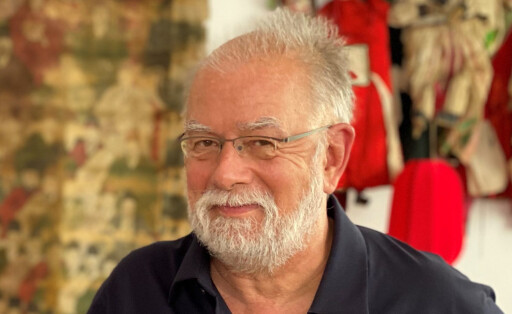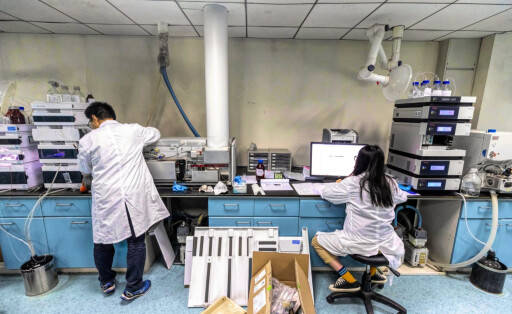Industry in China has been experiencing an upswing for decades. The People's Republic is now the second largest economy in the world behind the USA. Industry in China has been undergoing constant change for around forty years. Since the start of the reform and opening-up policy in 1978, the economy has been growing strongly. At the latest with this, the People's Republic turned away from the socialist market economy and increasingly oriented itself to capitalist doctrines. The economy in China is now market-oriented and hardly based on a planned economy. Nevertheless, the economy in the People's Republic is guided by the five-year plans of the Chinese Communist Party. The 14th Five-Year Plan was adopted in 2021 and provides industry with a roadmap up to the year 2025. A central component of this plan is the concept of dual circulation. It stipulates that domestic industry, agriculture and the service sector are to be strengthened in order to be less dependent on imports and foreign trade. Table.Media's editorial team has all the news on industry in China.
What is the structure of industry in China?
Industry in China is in a state of change. The focus of economic sectors has not only shifted in recent years, but completely changed the structure. In 2020, services were the largest branch, accounting for 54.5 percent of GDP ($14.7 trillion). Followed by industry (37.8 percent) and agriculture (7.7 percent). Since 2012, the service sector has been the largest in China.
What is China's industrial policy?
China's industrial policy pursues two key interests. The first goal is to make China's industry less dependent on global trade with the help of the dual circulation strategy. This should make the economy of the People's Republic more resilient and less dependent on global crises. The second goal is to develop industry so that the country becomes a high-tech nation. Head of state Xi Jinping plans to make China the most important innovation and technology driver in the world. To implement this industrial policy, China has developed the “Made in China 2025” strategy. In it, the Chinese Communist Party formulates targets for ten key industries. These plans are sometimes valid until 2049 and envisage a structural change in Chinese industry. China's ten key industries are: Information and communications technology Machine tool systems and robot technology Aerospace technology Biomedicine and medical devices Agricultural and forestry machinery Marine technology Energy saving and electromobility New materials Rail vehicles Electricity generation
What does Industry 4.0 mean?
The term Industry 4.0 covers technologies that help to digitalize industrial production. For this purpose, machines are equipped with information and communication technology to create networked systems. The aim is to create the most efficient, automated and self-organized production facilities possible, taking into account the entire life cycle of the product. That is, development, production, use, maintenance and recycling. People, machines, plants, logistics and products should communicate directly with each other. The term Industry 4.0 originally goes back to a research union of the German government, but has been given other names in other countries. In the People's Republic, the "Made in China 2025" plan corresponds to the goals of Industry 4.0. This strategy has five central initiatives, all of which pursue the modernization of industry in China. One of them is smart manufacturing. It aims to halve operating costs, production time and failure rates in selected key industries by 2025.
Which are China's strongest industries?
Despite the clear goal of modernizing industry in China, the largest companies in the People's Republic are still among the conservative business sectors. Sinopec and China National Petroleum were China's largest companies in 2020 - both are oil and gas companies. Coming in third is State Grid Corporation, a utility responsible for much of the electrical grid operation. All three companies are state-owned enterprises.
How is the topic of sustainability implemented in industry in China?
The topic of sustainability has gained importance in industry in China. For example, the Communist Party presented the top planning document at the World Climate Conference in Glasgow in 2021. It describes how the national climate targets are to be achieved. In 2060, the People's Republic wants to be climate neutral. The short-term goals primarily envisage an increase in energy efficiency. In other words, the same amount of goods is to be produced with less energy. The government's goal is to reduce CO2 emissions from industry in China by 18 percent in relation to economic output by 2025. 2020 will be used as the reference year. By 2030, CO2 emissions are to be reduced by as much as 65 percent, although 2005 is taken as the reference year. The share of non-fossil energy sources and nuclear power is to rise steadily to 80 percent in 2060. In 2021, around 60 percent of electricity will come from coal-fired power plants.
What is the relationship between Germany and Switzerland in terms of industry?
Switzerland plays a special role in economic relations between Europe and China. Unlike the other non-EU states Iceland and Norway, the country has not participated in the EU sanctions against China for human rights violations. China will become Switzerland's most important trading partner in the coming years. Although there is growing pressure from society on politicians and business to clearly address the grievances, companies and the government are banking on a special path and on being considered a neutral state. Although German-Chinese relations are strained by EU sanctions and increasing rivalry, the People's Republic has been Germany's most important trading partner since 2016. Thanks to the Communist Party's new environmental policy, there has recently been a political rapprochement again, at least in this area.
What about human rights in industry in China?
Again and again there are accusations of forced labor in various industries in China. Both the cotton and solar industries have been in the spotlight, as has agriculture. China researchers and NGOs repeatedly point out that the Muslim minority of the Uyghurs in particular is being trafficked into forced labor. Up to one million of them could be in re-education camps, according to the United Nations Human Rights Committee. The need for forced laborers is also increasing because the Chinese population is getting older and better educated. This is leading to a decline in factory workers. Industry in China is working with different strategies to solve the problem. For example, wages are rising, working conditions are improving and companies are strengthening staff retention.
Industry in China
The transformation of industry in China, the plans for more sustainability and the handling of human rights make it necessary to take a permanent look at the situation in the People's Republic. Table.Media's editorial team has all the news on the topic.




